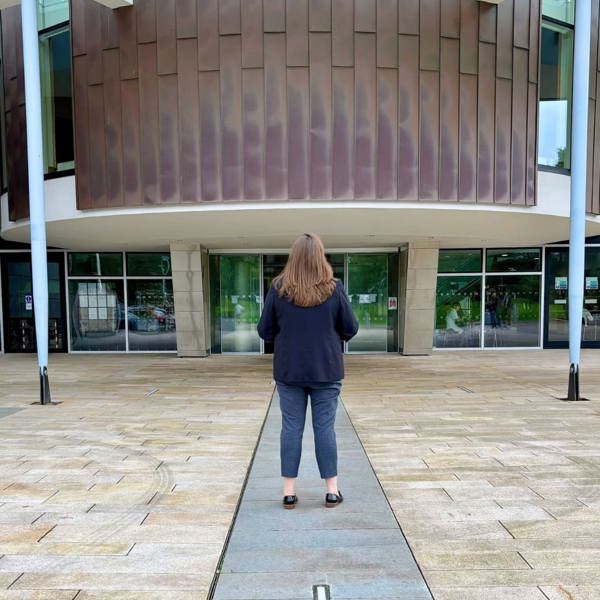From three verdicts to two — How the Scottish legal profession reacted to the 'untested' abolition of not proven

Scotland’s third verdict was branded controversial during efforts to reform the criminal justice system, writes Joshua King, and proposals to ditch it altogether ‘untested’. Now Parliament has voted to abolish ‘not proven’, how have solicitors reacted?
The Victims, Witnesses and Justice Reform (Scotland) Bill passed this week by 71 votes to 46 after two years of parliamentary procedure and two days of hectic Stage 3 debate.
The flagship bill not only scraps the ‘bastard verdict’, as Sir Walter Scott so bluntly described it, but seeks to embed a more victim-focused and trauma informed approach to criminal justice in Scotland.
Further changes include:
- Moving to a two-thirds majority of 10 out of 15 jury members required to convict [see Editor's Note in picture caption]
- Introducing a new dedicated Sexual Offences Court
- Granting automatic, lifelong anonymity for victims of sexual offences
- Introducing a Victims and Witnesses Commissioner for Scotland
- Protections for victims through reforms to Non Harassment Orders and other protective orders
- Requirement that the Parole Board for Scotland consider the safety and security of any victim and/or family members as part of decisions on release
- When setting licence conditions, the board must consider whether an exclusion zone should be required as a condition to protect the safety and security or wellbeing of a victim and/or family members
- Requirement that the Parole Board for Scotland must take into account whether a prisoner has information about the disposal of a victim’s remains, but has not disclosed it, as part of release decision-making (this is known as Suzanne’s Law in memory of Suzanne Piley. She was killed by David Gilroy in 2010. He has refused to reveal where her body is).
- Extend the rights of victims to make statements to the court, setting out how the crime has impacted them physically, emotionally and financially
But the reforms have been divisive and prompted lengthy debate at Holyrood with more than 160 amendments considered at Stage 3.
Whilst support for the abolition of not proven was broad in the chamber, MSPs from the Conservative and Labour parties respectively voted against the bill, objecting to the unwieldy nature of sure a wide-ranging bill. Concerns were also raised about the limited time allowed for debating complex amendments.
Previous plans to pilot juryless trials in a bid to improve conviction rates in rape cases were abandoned by the Scottish Government last year after widespread opposition.
How has the Scottish legal profession reacted?
The Law Society of Scotland has warned of significant risks for criminal justice after MSPs voted to approve untested changes to Scotland’s criminal court system.
The Society’s concern focuses on the abolishing of not proven as a verdict, and the regulatory body has expressed support for other victim-focused reforms in the bill.
Stuart Munro, Convener of the Law Society’s Criminal Law Committee, said: “We are disappointed our serious concerns are not reflected in the final legislation approved by MSPs, and apprehensive for the increased potential for miscarriages of justice as a result of changes not backed by research or experience elsewhere.
“The fundamental purpose of any criminal justice system is to convict the guilty and acquit the innocent. We’re moving from a system with a proven track record of achieving that outcome to one which is entirely untested and does not exist in any equivalent legal system anywhere in the world.
“The fact that no other jurisdiction operates a three-verdict model is commonly given as a reason for proposing its abolition, but we have significant concerns about following other systems in one respect but not in terms of the jury majority required for a conviction.
“Every legal system with a two-verdict system requires a unanimous or near unanimous jury to convict, whereas Scotland will now have a system where a person can be convicted despite five members of the jury having significant doubts about their guilt.
“Our concerns shouldn’t detract from the fact that we support other key changes this legislation will bring about, including the introduction of a Victims and Witnesses Commissioner and the granting of automatic, lifelong anonymity for victims of sexual offences.”
Tony Lenehan KC, Vice Dean of the Faculty of Advocates, told the Journal: "With the passing of this Bill, the Faculty of Advocates will work with the Courts Service and Scottish Government to help translate and implement the changes the Bill represents, into the new justice system envisioned by Parliament.
“We hope that the measures deliver as they were designed.
“We would call to Parliament's mind that investment is crucial to the success of the changes, and that the parlous condition of Scottish legal aid solicitors will undermine the ambitions of the Bill, if not recognised urgently.”
What have victims’ group campaigners said?


Following the vote, a rape survivor said that the scrapping of the not proven verdict has “given survivors and their families back their voice”.
The passing of the Bill follows years of campaigning by rape survivors, including a woman known only as Miss M, who launched the End Not Proven campaign with Rape Crisis Scotland in 2018.
Miss M successfully sued Stephen Coxen in the civil courts following a not proven verdict in a criminal trial in 2015, the first civil damages action for rape following unsuccessful criminal prosecution for a century.
But Rape Crisis Scotland has warned that the increases to jury majority requirements will “undoubtedly make survivors’ fight for justice even harder”.
Speaking after the vote, Miss M said: “When I started this campaign to remove the not proven verdict alongside Rape Crisis Scotland, the dream was just not to remove the not proven verdict but to highlight how misunderstood and damaging it was.
“This year marks 10 years since Stephen Coxen received a not proven verdict during my criminal rape trial. Throughout the campaign, people were shocked to hear I’d have preferred a not guilty verdict over a not proven verdict, but I’ve always said there is no difference between not proven and not guilty; at least with a not guilty verdict, the jury make a decision.
“Today the removal of the not proven verdict has given survivors and their families back their voice. We have all spoken up about how damaging this verdict is. Today we have been listened to and the improvements to the legal system are going to make it fairer and clearer going forward.
“To know that another rape victim isn’t going to experience what I had to go through after my criminal trial ended is the very reason I’ve invested so much time and energy into this campaign.”
Scottish Government data about the percentage of acquittals by not proven in 2022/23 show that for the crimes of rape and attempted rape, the rate was 27 per cent, compared to only four per cent for murder, culpable homicide or fraud.
Other sexual offences including sexual assault were overrepresented in not proven acquittals when compared to non-sexual violent and serious crimes.
Rape Crisis Scotland chief executive Sandy Brindley added: “Miss M and countless other survivors have campaigned tirelessly to remove the not proven verdict. Their experiences represent the many people across Scotland who have been let down by not proven – a verdict that was impossible to define, confused jurors and the wider public, prevented closure for victims, and was ultimately no different than a verdict of not guilty.
“Many survivors tell us about the trauma and distress caused by the criminal justice process – so we are also glad that the bill will see the creation of a new Sexual Offences Court, which we hope will streamline the management of sexual offences, reduce trauma for survivors of sexual violence, and help cut the unnecessary delays in the court system.
“However, while the bill takes many positive steps, we have serious concerns about the increase to the jury majority and the negative effect that this will almost certainly have on rape and sexual offence cases. Conviction rates are already terrifyingly low, and many police reports don’t make it to court. Meanwhile, research shows a reluctance to convict rape cases and deep-rooted prejudices around sexual violence affect public attitudes and jury decision-making every day. An increased jury majority will undoubtedly make survivors’ fight for justice even harder.”
Victim Support Scotland chief executive Kate Wallace said that the passage of the bill was a "momentous occasion".
"It marks a significant step towards creating a system that considers and prioritises the needs of people impacted by crime," she said.
And what did the government say?
Justice Secretary Angela Constance said: “This historic legislation will put victims and witnesses at the heart of a modern and fair justice system.
“By changing culture, process and practice across the system, it will help to ensure victims are heard, supported, protected and treated with compassion, while the rights of the accused will continue to be safeguarded.
“This legislation, which builds on progress in recent years, has been shaped by the voices of victims, survivors, their families and support organisations, and it is testimony to their tireless efforts to campaign for further improvement. I am grateful to those who bravely shared their experiences to inform the development of this legislation and pave a better, more compassionate path for others.”
What happens next?
Following Royal Assent, the legislation will be implemented in phases. More information will be available in due course, according to the Government.
Ministers have not set a timetable for dropping not proven or the implementation of a two-thirds majority for guilty verdicts. Both reforms will require judges and court staff to undergo training.
The establishment of a Sexual Offences Court and appointment of a victims’ commissioner would both likely take longer to deliver.






